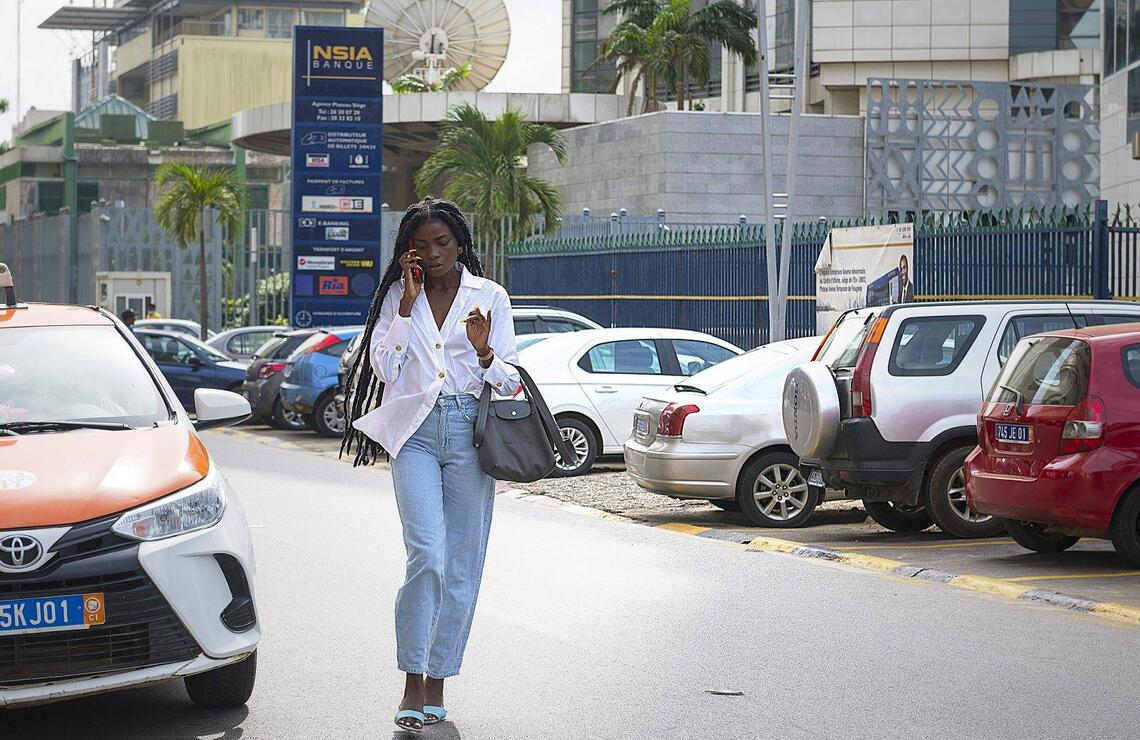
Women are on
the rise
Women make up half the population of Côte d'Ivoire. Yet achieving economic, social and political parity remains an uphill climb...
The numbers speak for themselves. Côte d'Ivoire has two women regional council presidents and sixteen women district mayors. There are 34 women MPs (out of 255) and 24 women senators (out of a total of 99). In the light of these findings, numerous organisations are taking action to promote women's empowerment and leadership on a number of fronts: training, coaching, capitalising on best practice, information and guidance for women. For Women Caucus for Lobbying-Côte d'Ivoire, as for other similar bodies, the simple fact of seeing women in positions of power, taking part in public debates or getting involved in social activities can inspire others, and thus encourage diversity. Excluding women from the public sphere, denying them the right to move freely and safely, to work, study and participate in public life, and confining them to the private sphere... All this restricts their fundamental human rights. The notion of gender, which is now defined as an approach to development, aims to reduce the social, economic, political and cultural inequalities between men and women, boys and girls. At the same time, it reveals the injustices and discrimination that are still condoned in various social contexts.
Legislation on violence against women has moved in the right direction. There has also been a stronger and more structured commitment on the part of civil society organisations.
STATE SUPPORT
The government, in conjunction with its national and international partners, runs useful programmes, developed and deployed through financial institutions. The women who benefit from these programmes are essentially vulnerable people, excluded from traditional bank financing systems.
Some significant mechanisms have been put in place. In the area of schooling and literacy for young girls, for example, with activities run in women's training and education institutes (IFEFs), or by setting up special funds for entrepreneurship. These include the Ministry of Women, Family and Children's (MFFE) Fonds Novateur Femmes et Développement (FNFD - Innovative Women and Development Fund), which by 2018 had spent nearly 600 million CFA francs, with average loan amounts set at 180,000 CFA francs. Or the Fonds d'Appui au Développement des Femmes Entrepreneures (‘Women Entrepreneurs Development Support Fund’) and the Agence Emploi Jeunes (‘Youth Employment Agency’), with its specific branches dedicated to young women. Above all, two emblematic structures have been contributing to changing society's view of women in recent years.
The first is the Fonds d'Appui aux Femmes de Côte d'Ivoire (FAFCI - Côte d'Ivoire Women's Support Fund), founded in 2012 by First Lady Dominique Ouattara. This low-interest loan fund, with 26 billion CFA francs in capital, has so far invested more than 58 billion CFA francs through decentralised financial systems to finance the income-generating activities (IGAs) of more than 500,000 women, with a repayment rate of 98%. As for the Projet de Gestion Novatrice de Fonds National Femmes et Développement (PGNFNFD - Innovative Management Project for National Women and Development Funds), housed within Nasseneba Touré's MFFE, the provision of funds meets the same criteria. The aim is to facilitate the socio-economic inclusion of disadvantaged women.
The MFFE works with decentralised financial systems. Between the year of its creation and 2023, this fund has granted 1,764 loans, and its beneficiaries have created 7,302 jobs. A total of 8,907 women have been able to build up their savings. Most of the women who have benefited from the PGNFNFD have taken part in decision-making bodies, been able to access banking services and contribute to their children's schooling, medical costs and household expenses. Like the FAFCI, the PGNFNFD offers loans or grants to women without requiring any prior savings, approval or guarantees.
INVESTING IN PUBLIC LIFE
Both the First Lady and Minister Nasseneba Touré hammer home the same credo at every opportunity: the more women are allowed the same rights as men to participate in public life, to influence decisions that affect them by speaking out, the more they will be present in the public arena. The aim is to change the way in which women are still perceived, often based on retrograde stereotypes. Of course, there are still challenges ahead. But time is undoubtedly an ally. In recent years, Ivorian women have begun to take an intelligent, legal, institutional and appropriate role in many areas of public life. And, above all, in a way that is uninhibited.